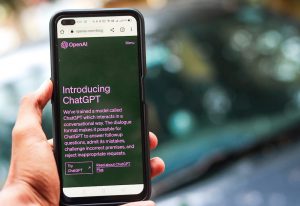The retail industry is undergoing a significant transformation with the emergence of AI-powered retail chatbots. These intelligent chatbots, driven by cost-effective open language models like ChatGPT, are revolutionizing the way businesses interact with consumers, leading to a projected spending of $12 billion in 2023 and a staggering $72 billion in 2028, according to Juniper Research.
Traditionally, chatbots have been a low priority for retailers due to the high costs associated with training AI-based algorithms. However, ChatGPT has disrupted this trend by significantly reducing the adoption costs for smaller retailers. This has opened up new opportunities for small and medium-sized shops to leverage the power of chatbot technology to enhance customer service, marketing, and transaction processing.
ChatGPT offers a wide range of benefits for retailers. One notable advantage is its ability to conduct powerful market research. By analyzing customer data, ChatGPT can provide insights into popular items, effective marketing channels, and drivers of customer loyalty. This empowers CEOs to better understand their customers' preferences and make informed decisions to improve their products and promotions.
Moreover, ChatGPT enables retailers to deliver highly personalized product suggestions, enhancing consumer satisfaction and driving sales. By analyzing client data, ChatGPT can recommend products based on individual tastes, prior purchases, and behavior, helping shoppers find products that align with their preferences in terms of fit, color, and fashion.
Another significant application of ChatGPT is automating retail customer care. Retailers can deploy ChatGPT-powered chatbots to provide real-time and conversational customer support, addressing client inquiries and providing order updates, including shipping details and projected delivery dates. Additionally, ChatGPT's language translation capabilities enable retailers to cater to a broader client base by overcoming language barriers.
While the Asia Pacific region dominates worldwide chatbot expenditure, with 85% of spending originating from this area, the study predicts significant growth in other regions, particularly North America and Europe, as they adopt open language models like ChatGPT. By 2028, it is estimated that 66% of chatbot expenditure will come from these regions, presenting a valuable opportunity for online retailers to leverage this expansion beyond Asia Pacific.
Improved customer service is a key focus for e-commerce firms, and advanced systems like ChatGPT offer intriguing potential in this regard. Traditional chatbots often fail to meet consumer expectations and effectively sell products. In contrast, ChatGPT-like technologies excel in handling complex consumer inquiries, with users reporting a higher level of understanding and satisfaction compared to regular chatbots.
As large firms adopt ChatGPT or develop their own AI-powered customer service solutions, smaller startups are also expected to embrace these advancements. Chatbot suppliers can offer affordable solutions to these enterprises, enabling them to enhance their retail experiences by leveraging AI to track consumer behavior and personalize purchasing decisions.
Although ChatGPT has found success in email marketing and content creation, its integration into customer support chatbots is still limited. However, the potential for ChatGPT to revolutionize customer support in e-commerce is immense, and retailers are eagerly awaiting further advancements in this area.
As chatbot expenditure continues to rise globally, retailers in North America and Europe should seize the opportunity to capitalize on this expanding market and leverage the power of AI to transform their businesses.




















